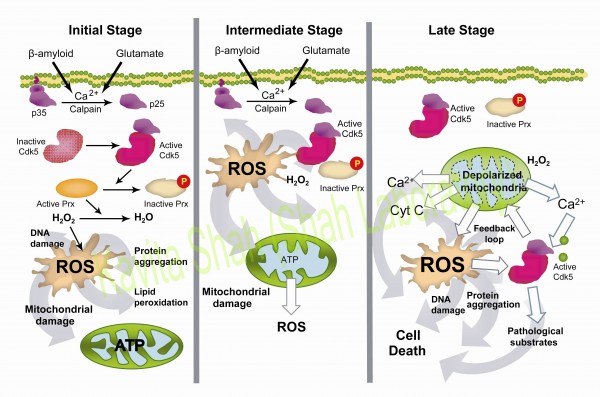Welcome to the Shah Laboratory
Drug Discovery in Cancer and Alzheimer's Disease Using Chemical Biology
Cdk5 promotes Oxidative Stress and Mitochondrial Dysfunction in Alzheimer’s Disease

Oxidative stress and mitochondrial dysfunction are one of the earliest events in Alzheimer’s disease (AD). We show that Cdk5 deregulation causes oxidative stress in neurons by compromising the cellular anti-oxidant defense system. Deregulated Cdk5 triggers oxidative stress by inactivating phosphorylations of Peroxiredoxin-I (Prx-I) and Peroxiredoxin-II (Prx-II). Prx-I and Prx-II are cytosolic peroxidases that efficiently scavenge cellular reactive oxygen species (ROS) (H2O2 H2O). This study also revealed Cdk5 as an upstream regulator of mitochondrial dysfunction. As mitochondrial damage results in elevated ROS and Ca2+ levels, both of which activate Cdk5, we propose that a feedback loop occurs in late stage of AD and leads to cell death. Thus, Cdk5 could be a viable therapeutic target for AD.